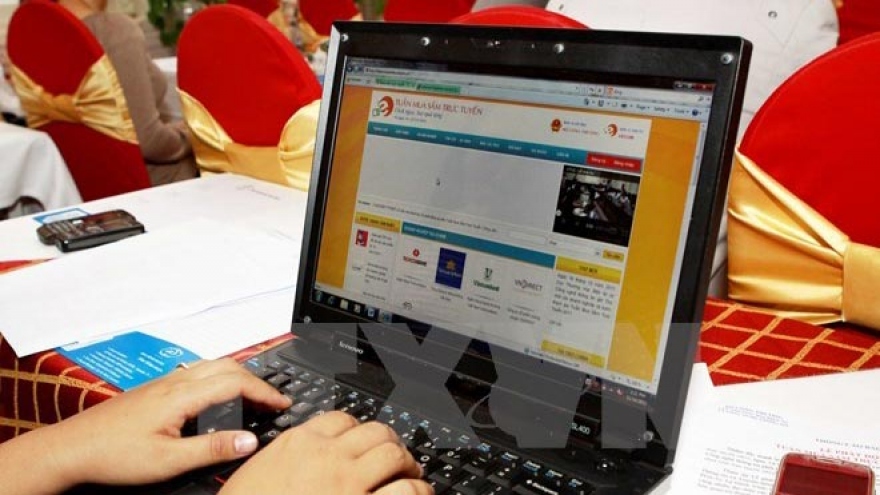Mobile pay threatens banks: experts
Foreign tech giants are set to jump into the mobile payments market on both the paying and receiving sides of the transaction, thus posing a threat to local commercial banks payment market share, warn local experts.
The newspaper also reported that Apple is expected to bring its Apple Pay product to Vietnam as well. Nguyen Tu Anh, CEO of Banknetvn said transactions via Samsung Pay and Apple Pay took only 10 seconds. She hoped that both Samsung Pay and Apple Pay will set up in Vietnam.
Multiple new payment methods that do not use bank cards have recently been launched, including Apple Pay, Samsung Pay, Facebook Payments, Google Wallet and Amazon Payments. They are seen as a threat to the payment market share of local commercial banks.
Samsung Pay launched in the US and the Republic of Korea in September last year, with plans to expand to China, Spain and the United Kingdom in early 2016. In China, Samsung is partnering with Union Pay, the country's largest provider of bank card settlement services.
Samsung has reported a strong response to its mobile payment system, notably due to the fact that its technology is compatible with magnetic stripe card readers, which are already being widely used by retailers.
A representative from a local commercial bank told the newspaper that not only foreign tech giants want to enter Vietnam, but domestic tech companies are also eager to offer e-payment services. Together, they are seen as a major threat to local banks.
Banks need to renovate
The number of smart phone users has rapidly increased, which will lead to a related increase in using e-payment, said Tran Huu Linh, Director General of the Vietnam E-commerce and Information Technology Agency under the Ministry of Industry and Trade.
Linh said that 35 million Vietnamese people use smart phones.
 |
According to statistics from the Ministry of Industry and Trade, at least 25% of online buyers bought products using their smart phones in 2015. The new consumer trend was quickly followed by the tech giants. In response, commercial banks will have to quickly renovate their banking technology.
Can Van Luc, a finance and banking expert said that all banks will need to quickly renovate and improve their banking technology, create new banking products, develop similar technologies to compete or repurchase the technology from existing tech companies.
Nguyen Hung, General Director of TienPhong Bank, said both Apple and Samsung have already revealed their plans to enter the e-payment market in Vietnam this year, but that the Vietnamese market remains too small for them to give much priority to major investment.
According to Hung, the tech giants would perhaps run test trials, but he thought it would still take at least one or two years for e-payment to become popular in Vietnam.
He said that investment in banking technology still remains essential. However, investment in banking technology cost a lot of money, with an average project costing between US$2-5 million.
If banks want to expand their networks they must invest in developing technology, and then the development of e-banks will bring them a high profit, said Hung. For this reason, TPBank will continue to invest in banking technology to make its banking system more efficient.
Cash payment habit
Speaking at the Vietnam E-Payment Forum held in Hanoi in last December, Deputy Prime Minister Vu Duc Dam said that although Vietnam's e-commerce market haws seen recent growth, in-cash habits in Vietnam are still overwhelmingly popular, accounting for 65 percent of total payment transactions.
"This habit has hampered the country's economic development as well as people's living standards," he said.
With more than 120 million mobile subscriptions and more than 40 million Internet users in Vietnam, electronic transaction processes have a lot of potential, he said.
The Deputy PM said that in 2014, e–commerce in Vietnam was valued at US$2.97 billion, and is expected to reach US$4 billion in 2015, increasing to US$7 billion in 2017. Many experts agreed that the country's e-commerce sector has potential, but that the cash payment habit remains a big and resilient hurdle for its growth.
According to statistics issued by the Vietnam Bank Card Association, 90% of card payment revenues came from transactions at ATM machines. Of this figure, 85% came from money withdrawals, 14% from transfers, and the remainder from payments.


